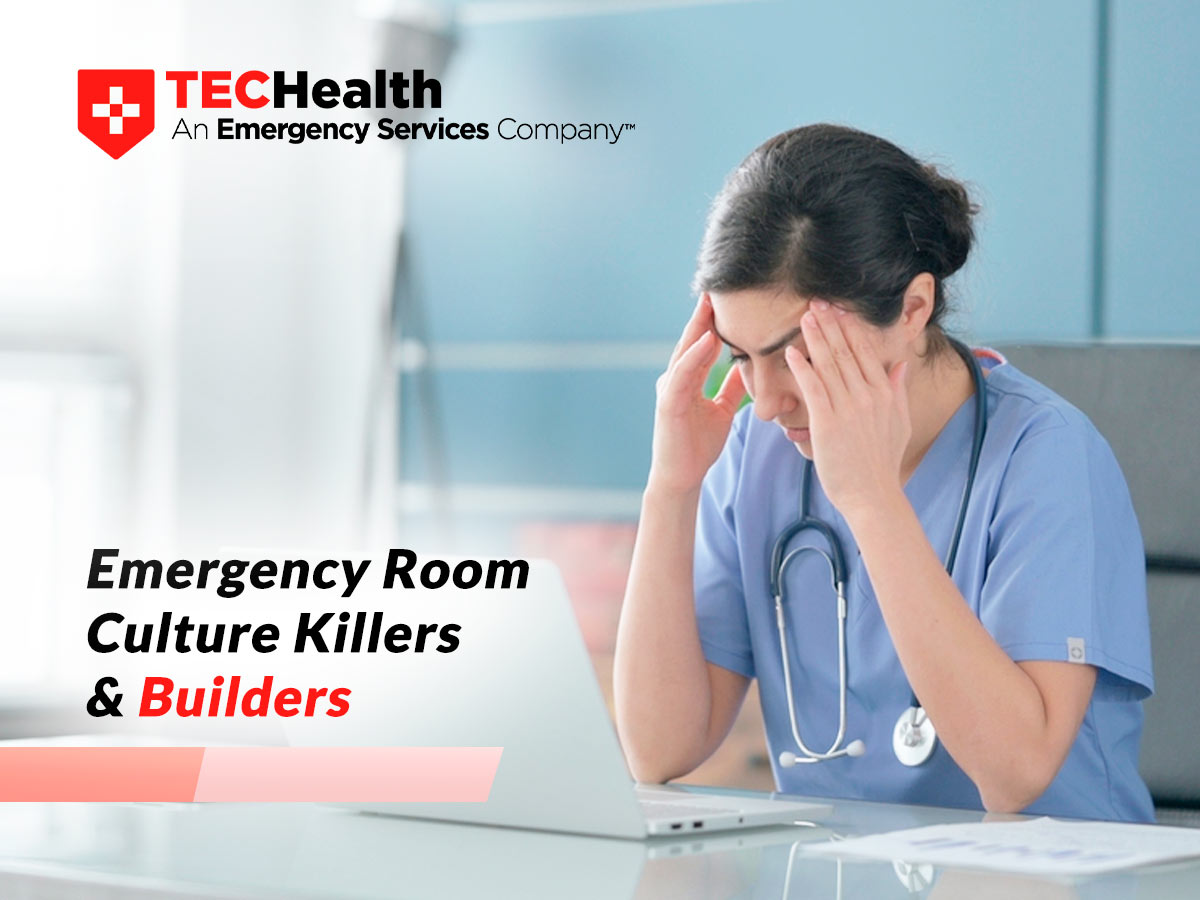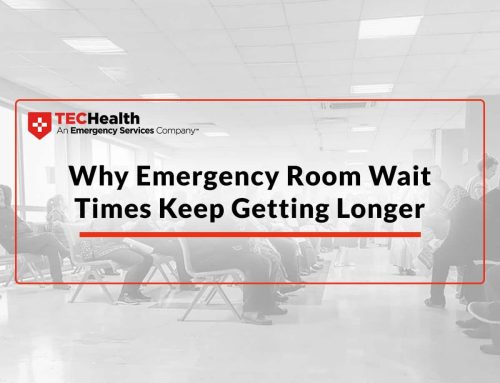Effective Strategies To Combat Emergency Room Culture Killers
Money, time and qualified staff may all be in short supply in healthcare. The one thing that’s not? Data. Since the migration to electronic health records, there’s been an ocean of it. Healthcare leaders have been swimming (and sometimes drowning) in it.
“Most of the places a doctor—or really any healthcare provider goes to work—have a huge focus on metrics and data. I’m not trying to say none of these things are important. They are. But there comes a point where that mentality takes the empathy and core caring out of medicine and brings it all down to productivity,” says Joel Betz, MD, Regional Medical Officer for TECHealth.
Dr. Betz says that being overly focused on metrics can be a culture killer. Many physicians see it as taking the humanity and rationale for becoming a doctor out of medicine by reducing patients to data points, as if a hospital were a factory. He believes that over time, it creates a feeling among physicians like they’re not being true to themselves and contributes to burnout.
Addressing Empathy Exhaustion To Prevent Physician Burnout
Burnout is among the single largest drags on culture, but one that is difficult to address.
“If you work in a big ER, you’ll hear things amongst the doctors like, ‘This guy doesn’t need to be here. Why is he wasting our time?’ But honestly what they’re really saying is, ‘I’m exhausted, and I don’t have the empathy to deal with this person or see another patient right now,’” explains Dr. Betz.
Yet still, what they often hear from leadership is that they need to see more patients to achieve targets.
In addition to the personal toll this takes on physicians in terms of depression and even suicide rates, this push has put many healthcare organizations into a negative spiral with their metrics. Clinicians get burned out and leave, exacerbating staffing shortages which leads to ever higher rates of burnout.
This also is typically when the data points related to quality and patient satisfaction really start going south.
Strategies To Cut Through The Numerical Clutter In Healthcare
From a tactical standpoint, trying to create programs to improve door-to-doctor time, throughput and other productivity metrics seem to make sense. But this almost always means leaning on physicians and other clinicians to do more in one way or another.
In lieu of a heavy focus on traditional productivity measures, TECHealth has found success putting the emphasis on a couple of areas.
“We’d always focused on patient satisfaction, but we now also really focus on provider satisfaction and communication,” explains Dr. Betz.
He says that focusing on getting these things right can take time. However, it pays off downstream with performance improvements not only in these areas but in many of the other metrics that leadership often covets.
Cultivating a Highly Reliable & Positive Healthcare Culture
“We try to create an environment where anyone on the staff feels comfortable approaching a doctor and sharing concerns without feeling like they’re hassling the doctor,” says Dr. Betz.
Open communication is one of the keys to creating a High Reliability Organization (HRO), and a culture where everyone feels comfortable voicing a worry or opinion. Research shows that healthcare providers that are aligned with HRO principles usually offer better experiences for patients and providers.
The effort TECHealth has put into establishing the processes and training to create HROs at the facilities they partner with has paid big dividends in terms of enhancing traditional quality, safety and experience metrics—even netting Five Star ratings from CMS.
“There’s a lot that goes into,” says Dr. Betz about establishing an HRO, “but it all comes from collaboration and communication, and open communication starts with building trust.”
For more about how TECHealth has worked to create strong cultures in the emergency departments it works with and the results of those efforts, contact with us.





